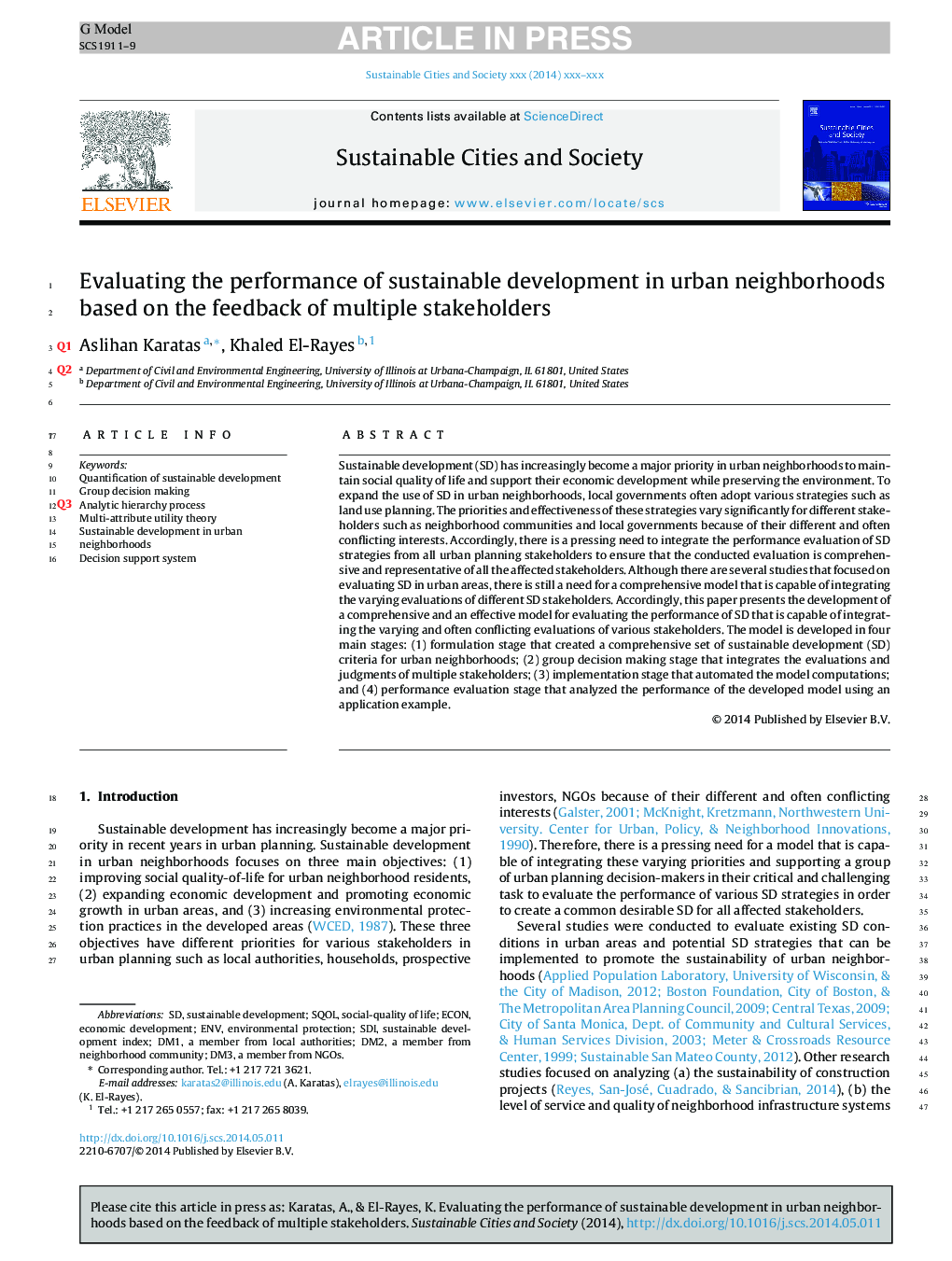| Article ID | Journal | Published Year | Pages | File Type |
|---|---|---|---|---|
| 6776465 | Sustainable Cities and Society | 2015 | 9 Pages |
Abstract
Sustainable development (SD) has increasingly become a major priority in urban neighborhoods to maintain social quality of life and support their economic development while preserving the environment. To expand the use of SD in urban neighborhoods, local governments often adopt various strategies such as land use planning. The priorities and effectiveness of these strategies vary significantly for different stakeholders such as neighborhood communities and local governments because of their different and often conflicting interests. Accordingly, there is a pressing need to integrate the performance evaluation of SD strategies from all urban planning stakeholders to ensure that the conducted evaluation is comprehensive and representative of all the affected stakeholders. Although there are several studies that focused on evaluating SD in urban areas, there is still a need for a comprehensive model that is capable of integrating the varying evaluations of different SD stakeholders. Accordingly, this paper presents the development of a comprehensive and an effective model for evaluating the performance of SD that is capable of integrating the varying and often conflicting evaluations of various stakeholders. The model is developed in four main stages: (1) formulation stage that created a comprehensive set of sustainable development (SD) criteria for urban neighborhoods; (2) group decision making stage that integrates the evaluations and judgments of multiple stakeholders; (3) implementation stage that automated the model computations; and (4) performance evaluation stage that analyzed the performance of the developed model using an application example.
Keywords
Related Topics
Physical Sciences and Engineering
Energy
Renewable Energy, Sustainability and the Environment
Authors
Aslihan Karatas, Khaled El-Rayes,
